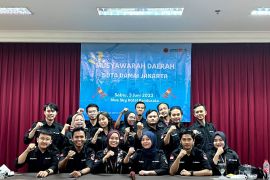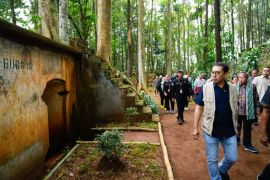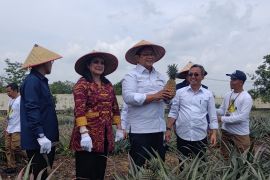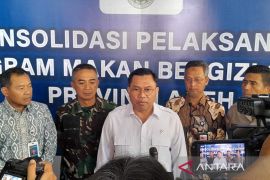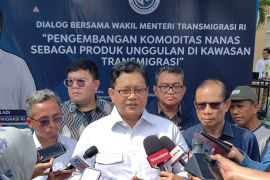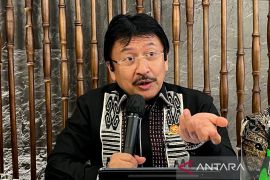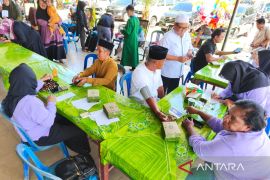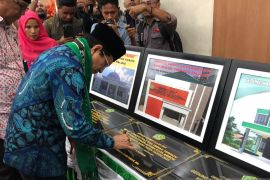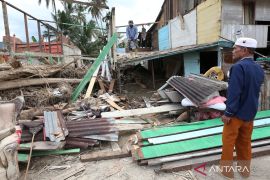But, as of Tuesday, the top leader of the Poso-based terrorist group who is also known as Abu Wardah remains fugitive as of Tuesday.
For Indonesia, Santosos capture is undoubtedly significant for its counter-terrorism efforts though it may only reduce the threats of terrorism in the country.
According to Director of the Jakarta-based Institute for Policy Analysis of Conflict (IPAC) Sidney Jones, "neither terrorism nor support for ISIS will go away with the arrest of Santoso".
She argued that "violent extremism is a hydra-headed problem for which there are no easy solutions." (IPAC Report No.18, 2015).
Amid the absence of easy solutions to this problem, saving as many young Indonesians as possible from being radicalized is important because they are vulnerable to radicalization.
Setara Institute for Democracy and Peaces recent survey on the perception of senior high school students in Jakarta and Bandung on tolerance has supported this fact.
The survey involving 684 students from 114 senior high schools that Setara Institute conducted from 9 to 19 March 2015 revealed that 49 respondents agreed with ISIS Movement.
"From 516 respondents who know what ISIS is, 49 agree with the ISIS movement. In other word, at least one out of 14 students agree with ISIS," the survey report revealed.
The outcome of this survey has raised concerns on growing support for ISIS from young Indonesians amid the fact that a number of Indonesians have joined the ISIS battles in Iraq and Syria.
The ISIS supporters in Indonesia had even launched a suicide bombing and shooting attack in Jakarta on January 14, 2016, which led to the death of eight people, including three innocent civilians.
In connection with the deadly assault, the Indonesian police have named Bahrun Naim, a 33-year-old computer geek who graduated from state-run Sebelas Maret University in Central Java, as the orchestrator of the attack.
Whether or not Bahrun Naim was radicalized during his university study, a senior researcher of the Indonesian Institute of Sciences (LIPI) Anas Saidi argued that students from secular university campuses were vulnerable to radical beliefs.
Due to the nature of their way of thinking in understanding religion, the students who studied hard sciences and engineering were "at greater risk of indoctrination" than those studying social and political sciences, humanities and philosophy (The Jakarta Post, 2016).
Considering this real threat to the academic communities in Indonesia, the National Counter-terrorism Agency (BNPT) has been promoting a dialog to help prevent them from being radicalized.
On February 29, the agency initiated a dialog titled "Preventing Radicalism Among Academic Communities in Central Java" by collaborating with the Research, Technology, and Higher Education Ministry and the Diponegoro University.
The agencys chief, Saud Usman Nasution, said the academicians were part of the main fortress for protecting the younger generation, including the people from the university, from being radicalized.
"Through this forum, we call on the academicians to continue to strengthen their self-defense and early warning systems to safeguard them from being affected by actively caring for their communities," he said.
The fact that terrorism is rooted in ideology, beliefs, and misconceptions about the goals the perpetrators of terror acts want to achieve in life, which are contradictory to that of the Unitary State of the Republic of Indonesia, the counter-terrorism efforts should not just be limited to "sharp bullets", "detention", and "law enforcement".
Instead, as Nasution noted, holding dialog was also necessary in the efforts to counter terrorism.
However, considering the motives of a person for joining a terrorist organization can varied, what Sidney Jones has ever suggested while delivering her lecture titled "Terrorism: myths and facts" at Parahyangan Catholic University in 2013 is useful for Indonesias counter-terrorism strategy.
She underlined the importance of treating convicted terrorists humanely during their prison terms and after their release.
"Humane treatment by police after arrest and during imprisonment, as well as economic opportunities after release, have persuaded some men not to return to the use of violence," she said. ***2***
T.R013/B/KR-BSR/B003) 02-03-2016 00:06:18
Reporter: Rahmad Nasution
Editor: Fardah Assegaf
Copyright © ANTARA 2016
